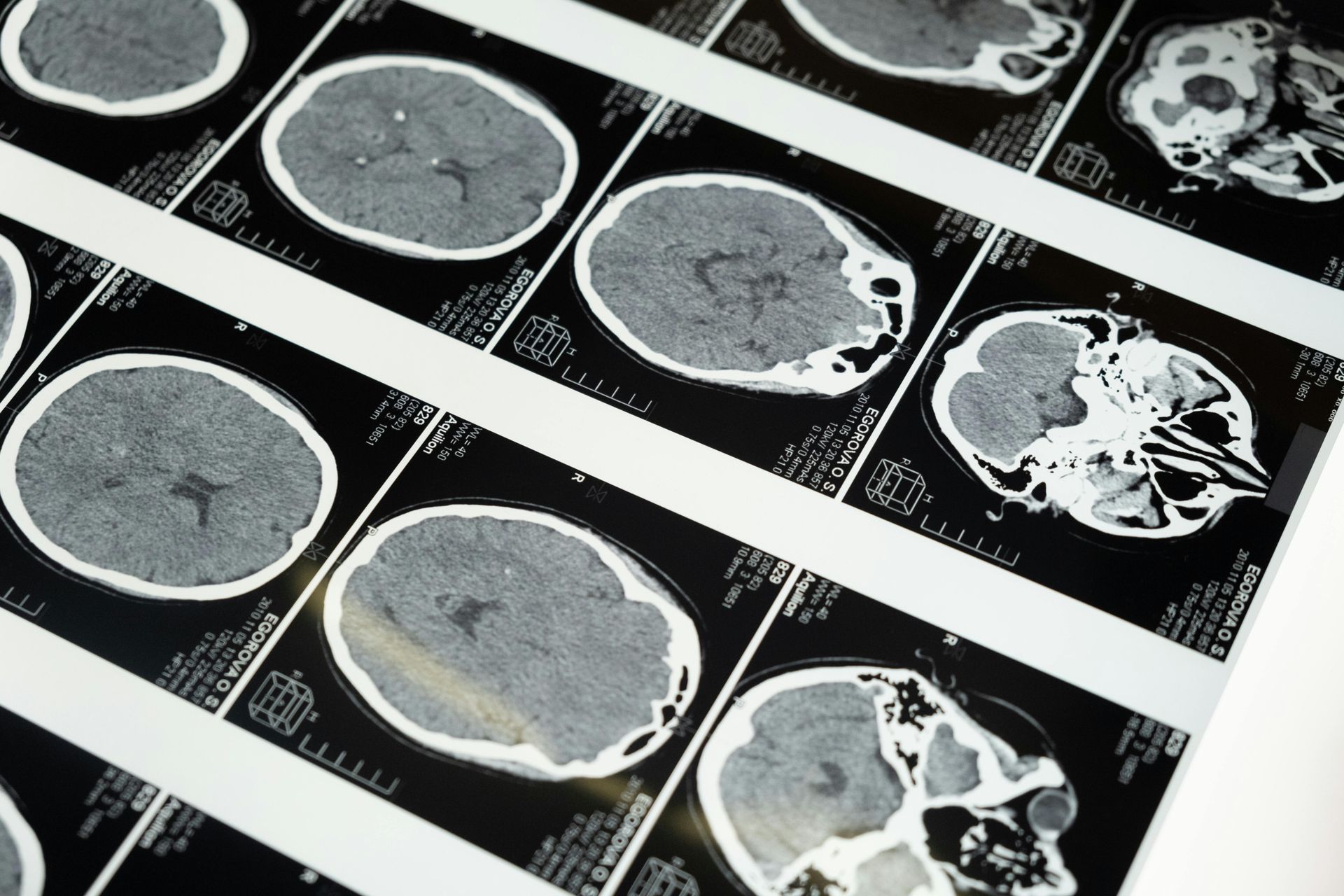Blog Layout
Addiction Explained
Grace Hope Recovery • April 8, 2024
Addiction is a relapsing disorder characterized by compulsive use of substances despite the many harmful consequences.
In the past, addiction was often viewed as a moral deficiency or a lack of willpower. Those suffering substance use disorders were stigmatized and treated as criminals or outcasts. Rather than treatment, persons were punished, leading to incarceration and further marginalization. The gains made in understanding the biological, psychological and social factors contributing to addiction have led us to better understand addiction as a disease rather than a personal or social failure. In addition, support groups like Alcoholics Anonymous have brought a more compassionate and community-based approach.
Advancements in science revealed addiction to be a chronic disease of the brain, influenced by genetics, neurobiology, and environmental factors.
Neuroscience explains how substances hijack the brain’s reward system (our dopamine and pleasure pathways), altering behavior and decision making. In addition, research highlights the role of co-occurring mental health disorders in addiction. The American Medical Association (AMA) and the World Health Organization (WHO) classifies addiction as a disease. Substance use disorder is explained to be chronic in nature, similar to diseases like diabetes or hypertension. Recovery from the disease of addiction is understood as a long-term process requiring holistic care, including addressing the physical and mental health of the patient and their social support.
Are there different types of addiction? Yes, addictions are separated by two classifications: Substance addiction and Behavioral addiction.
Examples of substance use disorders can be alcohol, opioids, stimulants, cannabis, nicotine, etc.. Each or a combination of substances have a common pattern of misuse and their effects on a person's health and behavior. Behavioral addiction can be gambling, gaming, shopping, internet use, etc. There are many similarities and differences between substance and behavior addiction.
Genetic predisposition and co-occurring mental health disorders have been found to be risk factors for a person to suffer substance use disorder.
Many who suffer from substance use disorder can recall family members who also suffer from the disease. Early interventions can prevent addiction from escalating, particularly in youth and high-risk populations such as those suffering co-occurring disorders. Environmental factors such as early exposure to substances or trauma, and family and peer influence can further put a person at risk for substance use disorder. When interviewing inmates in treatment for substance use disorder, many recalled exposures to hard drugs and alcohol at very young ages. Another risk factor to substance use disorder are psychological factors such as stress, immature coping mechanisms and personality traits. Unfortunately, substance use itself has an impact on a person’s self-esteem and emotional resilience, negatively impacting themselves psychologically.
How does one know if they have become addicted?
With substances, the first signs are developing tolerance and withdrawal symptoms. One notices that the amount that they used to need to feel good does not do it for them anymore and they must increase their dosage or frequency to feel high or good. This is not a choice; this is a matter of biology. Around the same time, they may also notice that when they don’t have the substance in their system, they feel signs of withdrawals which can be yawning, nausea, goose bumps and cold sweats, mild flu-like symptoms, restless legs and irritability just to name a few. After a time, the physical appearance of someone suffering substance use may deteriorate, they may lose or gain weight and appear bloated. Behavior and Psychological symptoms begin to appear, the person neglects their responsibilities, socially isolating and experiencing relationship issues. The inner turmoil, the obsession of the mind, denial, guilt and shame compound the suffering of the afflicted. Where does this lead? There is a well-known saying in AA, indicating that drugs and alcohol have only one destination, jails, institution or death.
Is there any hope for recovery from the disease of addiction? Yes!
I am happy to tell you that with the right combination of treatment and support, anyone can recover from this disease. Just as in the case of cancer or diabetes, with medical intervention there is hope. Research has taught us that group and individual therapy, peer support, and a strong social network strengthen the success of a person battling substance use disorder. At Grace Hope Treatment & Recovery Centers, Inc., we aim to treat substance use disorders through a holistic lens, offering compassion in hopes of paving the way for our clients to benefit from interventions, and treatment strategies. We understand the importance of addressing not just the symptoms of addiction but its root causes to support lasting recovery. If you or a loved one is suffering symptoms of substance use disorder, please call today to speak with a compassionate recovery coach at (866) 618-0016.
You might also like

By Grace Hope Recovery
•
April 10, 2024
Whether it's alcohol, prescription medications, or illicit drugs, the consequences of long-term use can be significant. Many people begin experimenting and using substances at a very young age and are unaware of the dangers they are exposing themselves and others to. In this post, we’ll explore the long-term effects of substance use on mental health and why it’s crucial to seek help. Increased Risk of Mental Health Disorders. One of the most concerning long-term effects of substance use is the increased risk of developing mental health disorders. Substances can lead to or exacerbate conditions such as depression, anxiety, bipolar disorder, and even schizophrenia. For individuals predisposed to these conditions, substance use can act as a trigger, making professional support essential. Many individuals in treatment admit that they began using substances as early as age 10-12 years. Can you imagine the impact this may have had on their mental health? Cognitive Impairment Prolonged substance use often results in cognitive deficits that can hinder daily life. Memory, attention, decision-making, and problem-solving abilities may be affected, making it challenging to function effectively at work or in social situations. Once addiction sets in, cognitive deficits make it more difficult to seek out help with their substance use and accept assistance from friends and family members. Emotional Dysregulation Many individuals who have used substances long-term have trouble managing their emotions. This can manifest as increased irritability, mood swings, and heightened emotional responses, which can strain relationships and lead to further isolation. Isolation is one of the main symptoms of substance use disorder. Social Isolation The impact of substance use isn’t confined to the individual. Relationships with family and friends often suffer, leading to social withdrawal and feelings of loneliness. This isolation can exacerbate existing mental health issues and create a vicious cycle of despair. Substance use counselors are trained to help with these issues and to teach coping skills to the patient so that they can work through these feelings and have a more positive outlook, work towards their goals and reach meaningful milestones. Increased Stress and Anxiety Chronic substance use can lead to a cycle of stress and anxiety. Individuals may find themselves facing various consequences related to their substance use, such as legal troubles or financial instability, which can further heighten feelings of anxiety and depression. While in treatment, individuals receive individualized case management to assist them with such consequences. Changes in Brain Structure and Function Long-term use of substances can alter brain chemistry and structure, affecting neurotransmitter systems that regulate mood, reward, and impulse control. These changes can lead to lasting challenges in emotional regulation and decision-making. Once an individual ceases use of substances, research indicates it can take one to five years for the brain to heal from the effects of addiction and although the brain may never heal to what it once was, it will be an improvement. Risk of Relapse For those with a history of substance use, the risk of relapse can increase over time, especially if underlying mental health issues are left unaddressed. A comprehensive approach to treatment is vital to mitigate this risk. Entering treatment is the beginning of the recovery journey. To prevent relapse, an ongoing holistic approach to treatment is necessary for most individuals. Building a strong, supportive community through 12-Step programs, peer support, therapists, physicians, family and friends will strengthen your ability to remain sober. Co-occurring Disorders Substance use can also lead to co-occurring disorders, where individuals face both a substance use disorder and one or more mental health disorders simultaneously. This dual diagnosis complicates treatment and recovery, making it essential to seek integrated care. More and more research is being done every year on treating individuals suffering dual diagnosis, making it easier to treat such individuals willing to accept assistance. Chronic Health Issues Finally, substance use can contribute to chronic physical health problems, which can, in turn, affect mental health. The stress of managing these chronic conditions can lead to further emotional strain, highlighting the interconnectedness of physical and mental well-being. When creating a strong relapse prevention plan, if an individual is suffering chronic physical health problems, it is important to find a physician that one can be honest with about their past substance use to get proper treatment. Seeking Help Addressing the long-term effects of substance use on mental health requires a comprehensive treatment approach. Therapy, medication, and robust support systems play crucial roles in promoting recovery and enhancing overall well-being. If you or someone you know is struggling with substance use, seeking help is the first step toward healing and a healthier future. Understanding these long-term effects is vital for individuals and their loved ones as they navigate the complexities of recovery. Remember, you are not alone in this journey, and we at Grace Hope Treatment & Recovery Centers, Inc., urge you to reach out and call us at 1-866-618-0016.

By Grace Hope Recovery
•
April 8, 2024
Taking a Look at Our Brain and How it's Affected From Substance Abuse Substance abuse doesn’t just impact an individual’s physical health or relationships; it profoundly affects the brain, often in ways that are difficult to reverse. Research has shown that while some of the affects on the brain can be healed, it can take two to five years for the healing process. Understanding how substances interact with brain chemistry has provided valuable insights into the nature of addiction and the importance of treatment and recovery. ________________________________________ The Brain’s Reward System: The Root of Addiction The human brain is wired to seek pleasure and avoid pain, a survival mechanism that reinforces behaviors essential for life, such as eating or bonding. Substances of abuse, like alcohol, opioids, cocaine, and others, hijack this natural reward system by flooding the brain with dopamine, a chemical that creates feelings of pleasure and euphoria, otherwise known as our reward system. Under normal circumstances, dopamine release is carefully regulated. However, drugs cause a massive surge in dopamine, far beyond what natural rewards can produce. This overwhelms the brain’s reward circuit, creating an intense desire to repeat the experience. Over time, the brain adjusts to this unnatural dopamine flood, reducing its ability to produce dopamine naturally. This leads to diminished feelings of pleasure from both the substance and everyday activities, a condition known as anhedonia. It should be noted that this can occur whether a person is taking illicit drugs or is prescribed a medication that causes one to become dependent which is why it is recommended to speak with your physician about your medications and discuss your best options. ________________________________________ Structural and Functional Changes in the Brain that occur over time Substance abuse can cause significant structural and functional changes in various parts of the brain. Here’s a closer look: 1. Prefrontal Cortex (Decision-Making and Self-Control): The prefrontal cortex, responsible for decision-making, impulse control, and regulating behavior, becomes less effective over time. This dysfunction makes it harder for individuals to resist cravings and prioritize long-term goals over immediate gratification. 2. Amygdala (Stress and Emotional Regulation): Substances can overactivate the amygdala, the brain’s center for processing stress and emotions. This increases feelings of anxiety and emotional instability, often driving further substance use as a form of self-medication. 3. Hippocampus (Memory and Learning): The hippocampus, which governs learning and memory, can be damaged, leading to difficulties forming new memories or recalling past ones. This impairs an individual’s ability to associate drug use with negative consequences, perpetuating the cycle of addiction. ________________________________________ Long-Term Impact: Tolerance, Dependence, and Withdrawal As substance use continues, the brain adapts by developing tolerance. This means that over time, larger amounts of the substance are required to achieve the same effect. Alongside tolerance comes dependence, where the brain and body rely on the substance to function normally. When the substance is removed, withdrawal symptoms—including anxiety, irritability, physical discomfort, and intense cravings—emerge as the brain struggles to regain balance. ________________________________________ Can the Brain Heal? The Hope of Neuroplasticity The good news is that the brain is remarkably resilient and capable of healing through a process called neuroplasticity. With sustained abstinence, proper treatment, and healthy lifestyle changes, the brain can repair damaged pathways and create new ones. Some strategies that support brain recovery include: Therapy and Counseling: Cognitive-behavioral therapy (CBT) and other evidence-based approaches help individuals rewire thought patterns and behaviors. Medication-Assisted Treatment (MAT): Medications like buprenorphine, methadone, or naltrexone can stabilize brain chemistry and reduce cravings. Nutrition and Exercise: Proper nutrition and regular exercise promote brain health by supporting the production of new neurons and enhancing mood-regulating neurotransmitters. Mindfulness Practices: Meditation and mindfulness can help regulate stress and improve emotional stability, supporting recovery. ________________________________________ Conclusion: The Path to Healing Substance abuse affects the brain in profound ways, disrupting its natural balance and altering essential functions like decision-making, memory, and emotional regulation. While these changes can make recovery challenging, understanding the science behind addiction underscores the importance of seeking help and committing to treatment. With the right support, the brain’s remarkable capacity for healing offers hope for a brighter future, free from the grip of addiction. Here at Grace Hope Treatment & Recovery Centers, Inc., we are committed to provide you or your loved one with evidence based treatment in an effort to support your recovery needs and guide you towards your healing journey.
Call Our Helpline Today:
Request a Call Back.
Our Recovery Coach will call your back within 24 hours.
Sign up to our newsletter
Thank you for contacting us.
We will get back to you as soon as possible
We will get back to you as soon as possible
Oops, there was an error sending your message.
Please try again later
Please try again later
© 2025
All Rights Reserved | Grace Hope Treatment & Recovery Centers, Inc.




